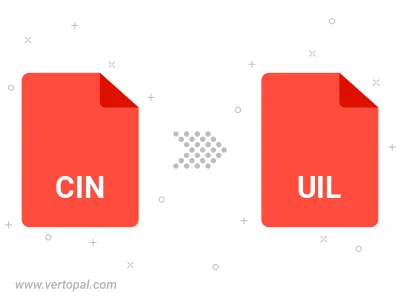Convert CIN to UIL
Convert CIN images to UIL format, edit and optimize images online and free.

The CIN file extension stands for Kodak Cineon Bitmap Image, a format developed by Kodak in 1992 to digitize film images for electronic compositing, manipulation, and enhancement. It stores a single frame from a motion picture or video data stream with 10-bit color depth per RGB channel. Although the Cineon System is now discontinued, the format is still used in visual effects and film restoration. CIN files can be opened and converted using applications like Adobe Photoshop and XnViewMP.
The UIL file extension stands for User Interface Language and is associated with the X-Motif UIL Table. It is a plain text file format used by the UIL compiler to create user interfaces for the X Window System. UIL files define menus, buttons, dialog boxes, and other graphical user interface components. Introduced by The Open Group, this format allows developers to describe the initial state of a user interface, including widgets, resources, and callbacks. The UIL file is compiled into a UID file, which can be accessed by Motif Resource Management functions within an application.
Drag and drop or manually select the CIN file from your system.
Refine the CIN image using tools before converting to UIL.
Once the UIL process is finished, the file will be ready for download.

The Vertopal CLI ensures reliable conversion of CIN image into UIL image formats.
cd to reach the CIN folder or reference the path.